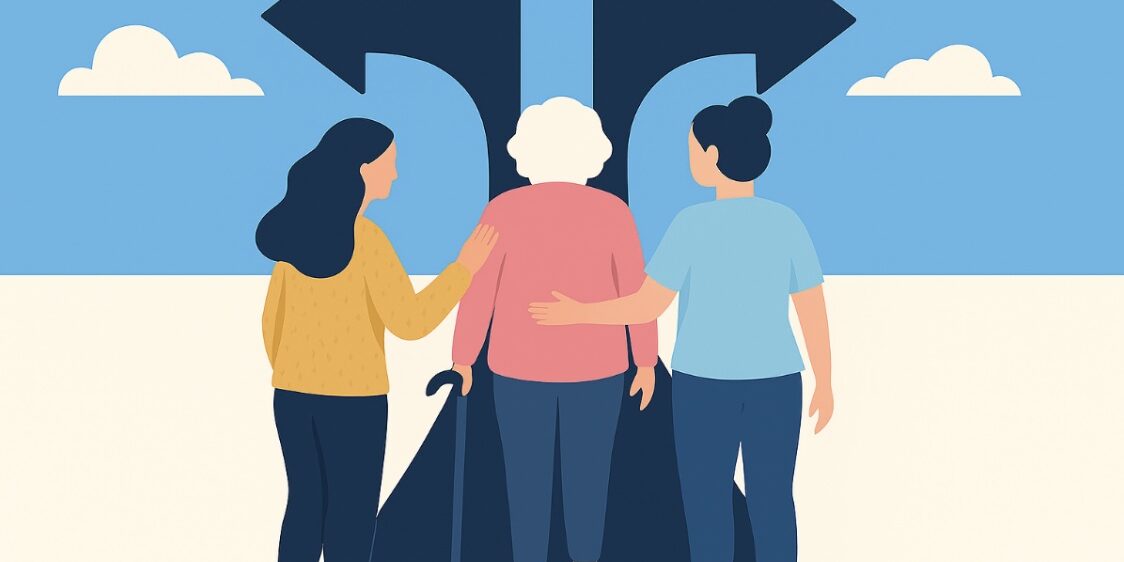Best-laid plans can go awry.
Two sisters whose 90-year-old mother had mild dementia thought that an assisted living facility might be the best place for her. Near one sister’s home, they found a great place with lots of social opportunities and activities, which they hoped would help slow the dementia’s progress. They toured the place, which would provide her with her own apartment, and she agreed to move there.
Unfortunately, the choice did not end up working out. Their mother’s previously intense exercise routine, which included yoga and Zumba, was replaced by exercise classes for a much less mobile crowd. Their mother’s embarrassment about her forgetfulness caused her to stay in her apartment much of the time, which meant that she didn’t enjoy many of the social opportunities that were supposed to have a positive effect on her dementia. She also became depressed in part because being in an assisted-living facility made her feel like her life was over.
Neither sister knew what to do. Their mother’s dementia was worsening, and they weren’t certain whether the move was a contributing factor due to the new social discomfort, reduced exercise, and other issues, such as a lack of nearby areas to walk. Regardless, her decline was precipitous, which worried them. Employees at the facility assured them that a transition period was normal, and they tried to find ways to help their mother adjust. Unfortunately, nothing worked.
So, what could they do? They decided to reverse course and move her out of the facility. Instead, they rented a condo across the hall from the youngest sister, who lived nearby. The condo community was a place that their mother enjoyed, had lived previously, and already included a circle of friends and acquaintances that their mother missed. The sisters hired a caretaker, so that their mother would have someone with her at all times.
A month later, the new plan is working out. Their mother feels more at ease and happier. The change may not end up having a positive effect on her dementia, but the whole family feels like they’ve taken an important step forward.
This type of rethinking is often necessary for caregivers, who may encounter multiple confusing issues during their caregiving journey. Shifts in financial circumstances or the physical, mental, and/or emotional health of a loved one, a caregiver, or another family member may require new arrangements. If you’re trying to tackle such a caregiving issue, don’t be afraid to reverse course. Here are some tips to help you as you consider your options.
1) Emotions May Cloud Judgment
Caregiving decisions are often rife with emotional hurdles. Guilt, shame, anger, confusion, and myriad other emotions can stymie both caregivers and their loved ones. Some may feel paralyzed as they try to make the “right” decision. Realizing that there may not be a “right” decision can sometimes take the pressure off. Try to relax and make the best choice you can under the circumstances. Whatever you choose is okay.
2) Reverse Is a Good Direction
If a choice doesn’t work as expected, keep in mind that it can always be reversed or shifted. Nothing in life is permanent. Often, the first choice will turn out to be a good choice, but if not, that’s fine too. There are always different ways to turn, and it’s perfectly acceptable to change everything up if a choice isn’t working out.
3) Plan for Change
One way to make a decision feel more comfortable is to consider in advance what might go wrong. What if a loved one isn’t a match for a care facility? What if something changes, such as cost, services, staffing ratio, facility safety, or amenities, and the facility is no longer a match? How easy is it to change course? What would the contractual obligations be? Would it make anyone feel more comfortable to have a Plan B? If so, create one.
As we enter the Thanksgiving and holiday season, it’s worth remembering that caregiving, much like family traditions, rarely goes exactly as planned. Wrong turns may arise, but they can also lead to deeper connections, renewed gratitude, and a reminder of what truly matters. This season, may we embrace flexibility, cherish the moments of togetherness, and find comfort in knowing that love guides us through every change of course.
Thank you for reading, please share with a friend, and be well!
—KK
We are grateful to have been helping caregivers in need for over 10 years thanks to the support of the many generous and caring friends who have helped make a difference in so many lives.
Please consider donating to the Kathi Koll Foundation so you can help make a difference in struggling family caregivers’ lives. Thank you!
Hero Image: Created by Microsoft Copilot


